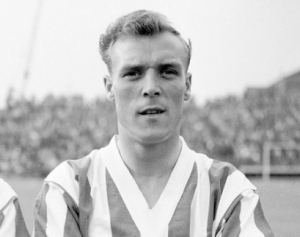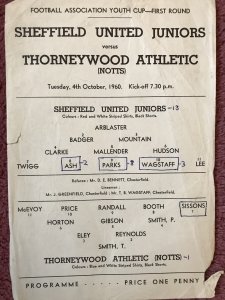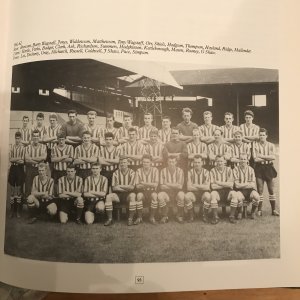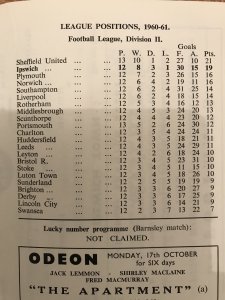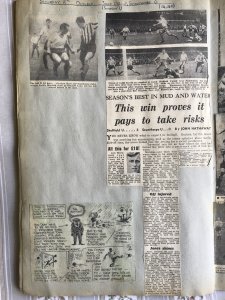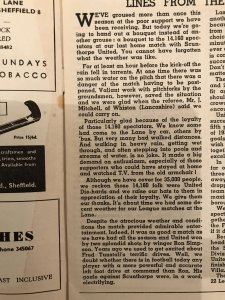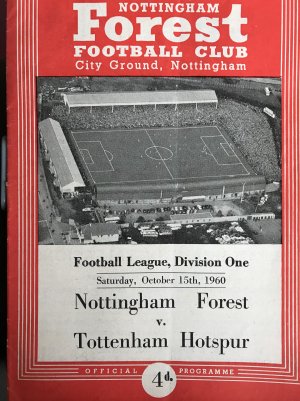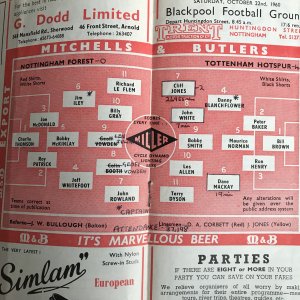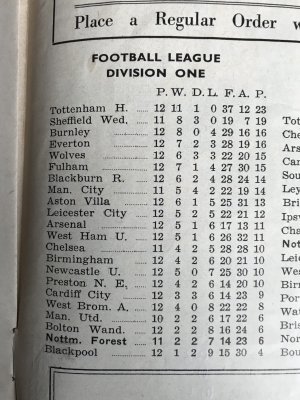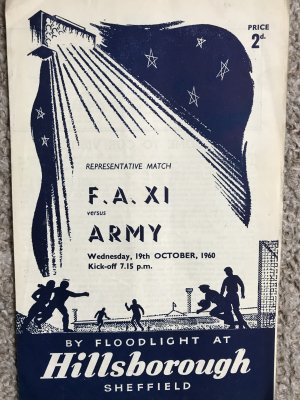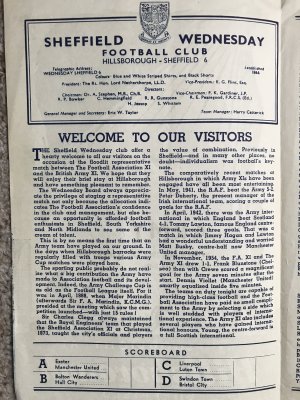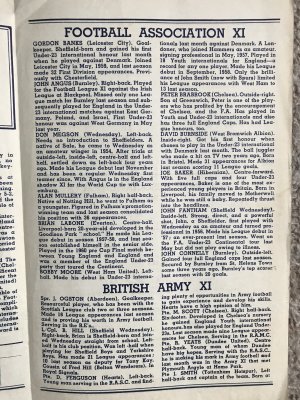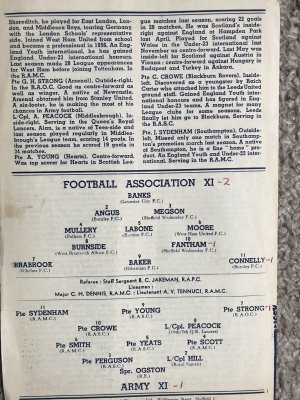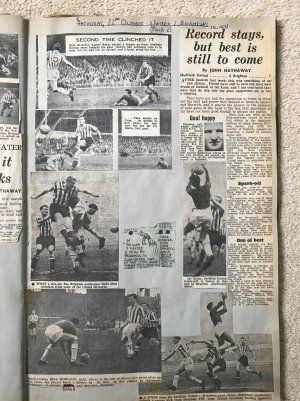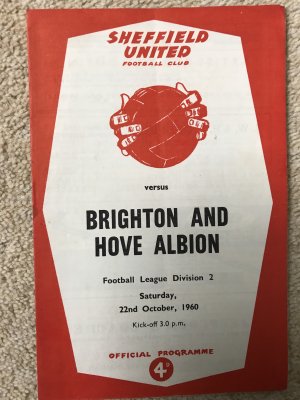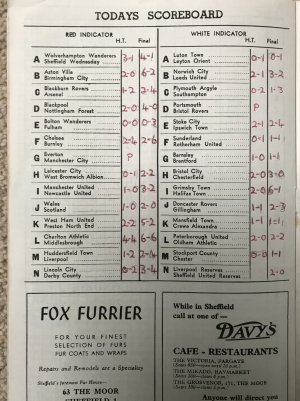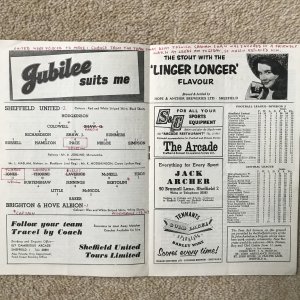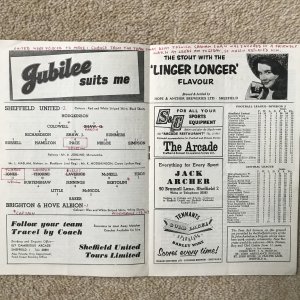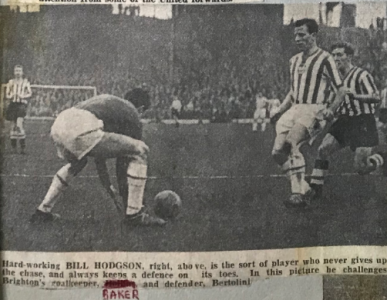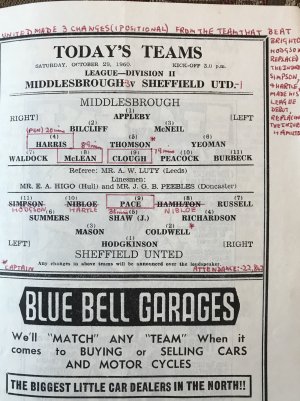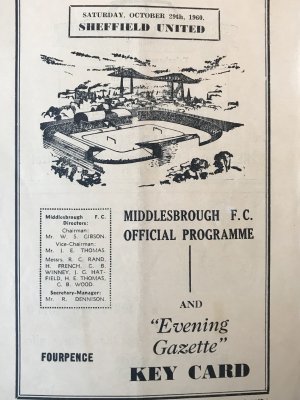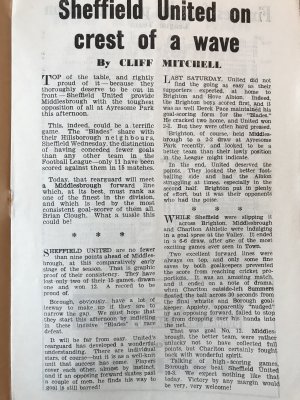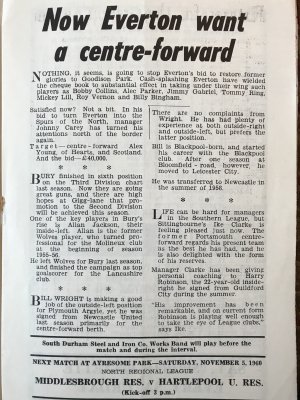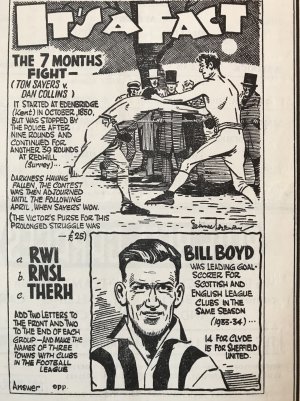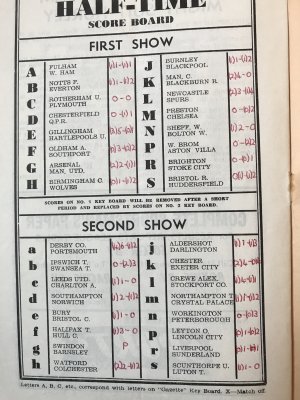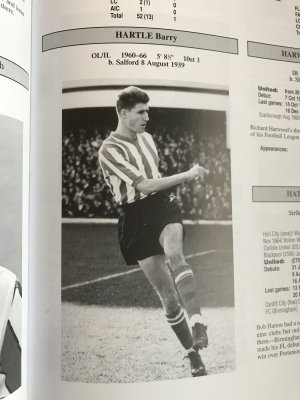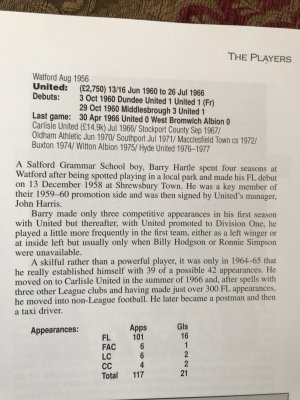October 15, 1960: Ipswich 0-1 United
(Attendance 19,513)
Is there such a thing as momentum in football? No answer is ever definitive, but this result at Ipswich supports the notion that winning (or losing) can become a habit. In a match against the team second in the league, we scored an early goal, held on to the lead, and so made it 7 league wins in succession. These were not spectacular wins, but solid team performances by the same group of players, who had formed a formidable unit. The review of the game in the following week’s programme describes it thus:
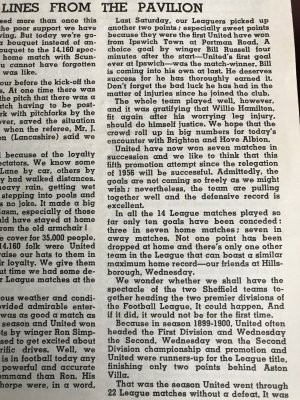

This was the first goal United had ever scored at Ipswich, and gave us a healthy lead at the top:
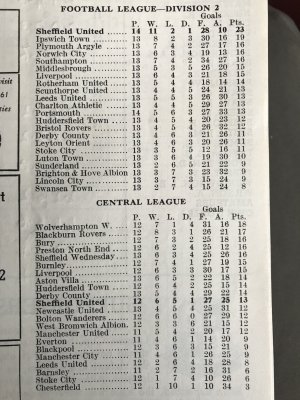

The defence had conceded just 10 goals in 14 games, and the back 6 played a role as important as the back 6 in 2018-19. Very different players and different roles, but if you print the team below with Coldwell and Graham Shaw in front of the half-backs, it gives a sense of how important the back units were in 1960-61 and 2018-19:
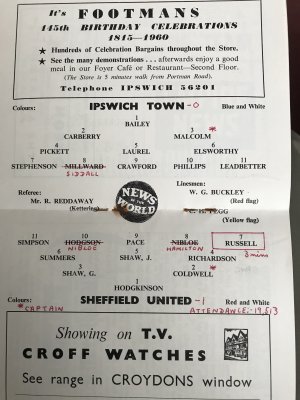

The Ipswich team, managed by Alf Ramsey, were also a strong unit, shown by the fact that they did go on to win promotion, and then followed this by immediately winning League 1. If there is one respect in which football was better than it is now, it is surely this: a club winning promotion to the top tier did not need to settle for avoiding relegation the following season, but could expect to compete as equals in the league. Some clubs were bigger and wealthier than others, of course, but the differences were such that they could be bridged, and that is surely healthier than what we have with the Premier League in 2020.
One remarkable fact about the Ipswich team that day is that they fielded 5 players (Bailey, Carberry, Elsworthy, Phillips, Leadbetter) who won League winners medals with the same club in Leagues 3, 2 and 1, a feat only ever achieved by 1 other player in history - Andy King at Leicester.
3 further random details. Ray Crawford is remembered fondly in these parts as the Colchester player who scored 2 goals v Leeds for Colchester, in a famous Cup giant-killing. Ted Phillips was tested in a dead-ball kicking trial against the likes of Lorimer and Bobby Charlton, and declared to have the hardest shot in English football. And Leadbetter was an inside-left played in a withdrawn left-sided position, and Alf Ramsay describes him as a key figure in the development of the thinking behind England’s ‘wingless wonders’ who won the World Cup in 1966. What Leadbetter, who was Scottish, made of this is not recorded.
As I said in a previous post, I missed the Ipswich match, but my brother went, if I remember correctly with the Supporters Club on one of their weekends away. I never got to go on one of those trips. But I was at a wonderful match elsewhere, and will post details later.

